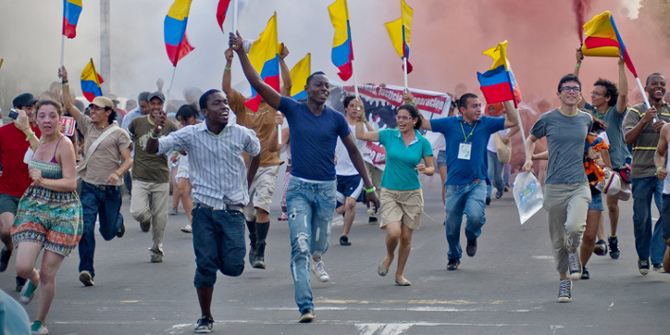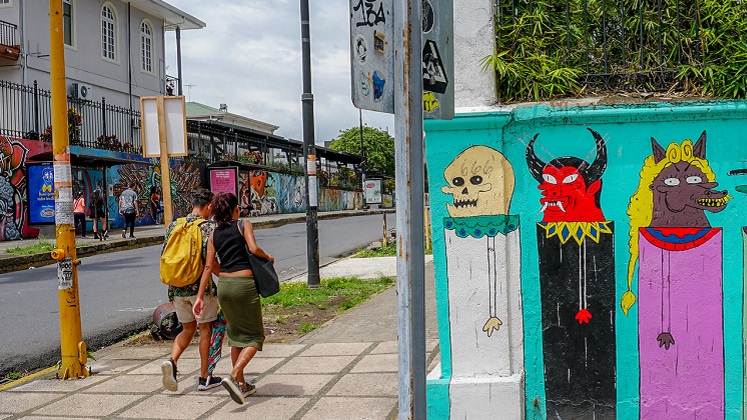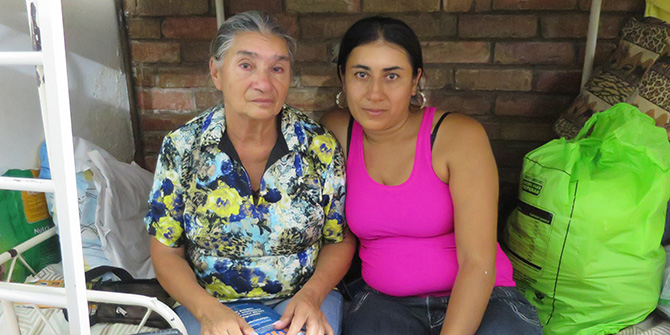 The new MAS government of Luis Arce will be caught between popular expectations of a return to relative prosperity, a growing ecological catastrophe tied to a declining economic model, and a range of social and ideological challenges that pit right-wing religious forces against an increasingly progressive younger generation. But even if the years ahead will show that this victory was in fact the easy part, for now Bolivians have given the world a vital lesson in democracy, writes Bret Gustafson (Washington University in St Louis).
The new MAS government of Luis Arce will be caught between popular expectations of a return to relative prosperity, a growing ecological catastrophe tied to a declining economic model, and a range of social and ideological challenges that pit right-wing religious forces against an increasingly progressive younger generation. But even if the years ahead will show that this victory was in fact the easy part, for now Bolivians have given the world a vital lesson in democracy, writes Bret Gustafson (Washington University in St Louis).
Though the official tally is still being finalised, exit polls released around midnight on Sunday 18 October suggest an overwhelming victory for the MAS party in Bolivia, just eleven months after the ouster of Evo Morales. To avoid a run-off, the MAS presidential candidate Luis Arce needed at least 40 per cent of the vote and a ten-point lead over his nearest rival, but this looked like anything but a foregone conclusion in the lead-up to the elections.
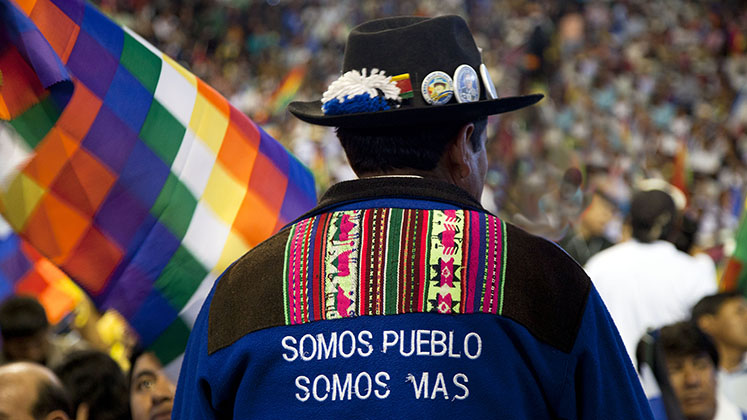
Pre-election polling and a divided opposition
In the weeks and days before the vote, polling suggested that Carlos Mesa, a right-leaning historian who was briefly president in the early 2000s, stood a good chance of making it to the second round. Including Mesa, opposition to the MAS was divided between four candidates for most of the campaign. Had Mesa made it to the second round, a unified opposition might have given him the win in a head-to-head vote.
But after eleven months of a brutal interim government, made worse by its corrupt and incompetent management of the COVID-19 crisis, Bolivians patiently stood in long lines and delivered a resounding first-round victory to Arce and his running mate David Choquehuanca.
Somewhat strangely for a historian, Carlos Mesa had promised to “erase the past”, suggesting that the country should do away with the MAS and its legacy. But it seems that Bolivians wanted nothing of the sort, and they responded by returning the MAS to power. With Arce taking around 53 per cent of the vote, Mesa came in a distant second with just 32 per cent, which is nowhere near the second-round threshold.
Bolivians have given the world a lesson in patience and democracy, and in taking opinion polls with a pinch of salt.
The MAS governments of Evo Morales
Evo Morales, despite his critics, had managed 14 years of economic stability and prosperity. He did so through a pragmatic rapprochement with capital – especially the natural gas industry and domestic business interests, in particular the agroindustrial elites. Frugal management of foreign reserves earned from gas exports and a generous dose of public spending had given him a central bank full of dollars, a stable exchange rate, economic growth, and significant reductions in poverty.
To be sure, corruption cases were common, as they have long been in Bolivia. Critics also pointed to Evo’s contradictions. He spoke of Mother Earth while pushing for more mining and more gas exploration. He touted Indigenous revitalisation while riding roughshod over Indigenous organisations that opposed particular state-backed development projects. And he embodied a hyper-masculine mode of politics amidst a rising crisis of violence against women, refusing to move forward on issues of abortion rights and sexual equality.
Evo and the MAS had managed to maintain hegemony by offering concessions to agro-industry as well, putting the brakes on land reform and limiting projects for Indigenous autonomy to just a handful of municipal restructurings. Yet all of this was countered by relative economic wellbeing and a deep layer of grassroots support, strong in every part of the country. In the face of the coup, the pandemic, and the brutality of the interim regime, this base showed up in force for Sunday’s election, returning the presidency and most of the Congress to the MAS.
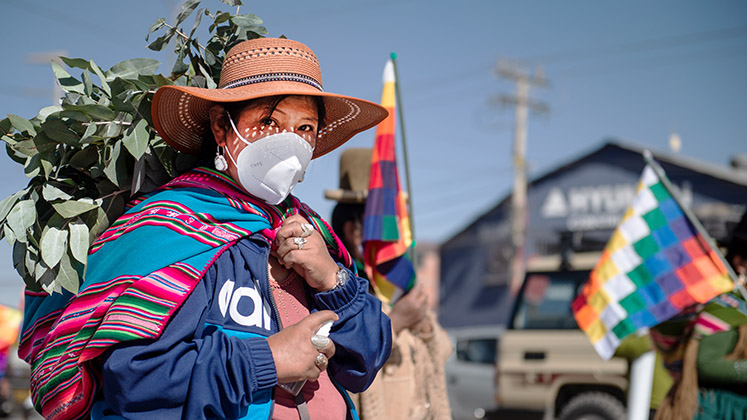
The difficult road ahead for President Luis Arce
Yet winning the elections might be the easy part for the MAS. President Luis Arce, who was Minister of Economy for most of Evo’s 14 years in office, faces lower gas prices, shrinking revenues, and reduced external demand. Foreign reserves have dropped precipitously, and the agroindustrial elite is pushing for a devaluation of the currency.
The interim government of Jeanine Añez had already begun to talk about borrowing more money from the International Monetary Fund (IMF), and though Arce and the MAS have long been opposed to the institution’s pro-austerity and anti-state policy prescriptions, fiscal pressures might ultimately lead them to take on more debt.
There are also longstanding questions about the sustainability of Bolivia’s extractive economy. Aside from the inherent environmental damage, the continued centrality of gas and industrial agriculture has also failed to deliver the fairer distribution of wealth that was supposed to be the payoff. Indeed, the revenue that these industries bring in tends to stimulate consumption without creating a lot of jobs. Rates of un- and under-employment in Bolivia are already high, but youth demand for jobs will only grow.
In the agricultural sector particularly, environmental concerns had already been raised about Evo’s decision to open the country’s doors to genetically modified (GM) soy, and the interim Añez regime went on to lower barriers to five other GM seeds. These moves could merely exacerbate ecological threats and further entrench an inefficient agro-industrial economy that relies on heavy state subsidies to survive (in the face of strong competition from Brazil).
Morales also faced criticism over forest fires in the Amazon that are likely to get worse rather than better during Arce’s time in office. And this reflects a wider problem facing the new president: expanding soy and cattle frontiers are combining with inaction on other threats to the Amazon like gold mining, much of which is tied to Chinese capital, thereby creating a volatile mix of environmental challenges.
Challenges for the future, but a triumph nonetheless
Overall, the new government will be caught between the popular expectations of a return to relative prosperity, a growing ecological catastrophe tied to a declining economic model, and a range of social and ideological challenges that pit right-wing evangelical and Catholic forces against an increasingly progressive younger generation. The months and years ahead will show that this electoral victory – itself no walk in the park – was in fact the easy part.
That said, the serene, serious, and patient commitment to the democratic process that we witnessed on 18 October also demonstrates Bolivia’s deep commitment to the possibility of a state that can truly meet the needs of its people. In the face of a vocal minority preaching racism and exclusion, there exists a collective moral consciousness that bristles at state violence, military intervention, and injustice.
Whatever one thinks of Evo Morales, and despite the challenges ahead, it is clear that for the moment at least Bolivians have given the world a lesson in democracy.
Notes:
• The views expressed here are of the authors rather than the Centre or the LSE
• Please read our Comments Policy before commenting



